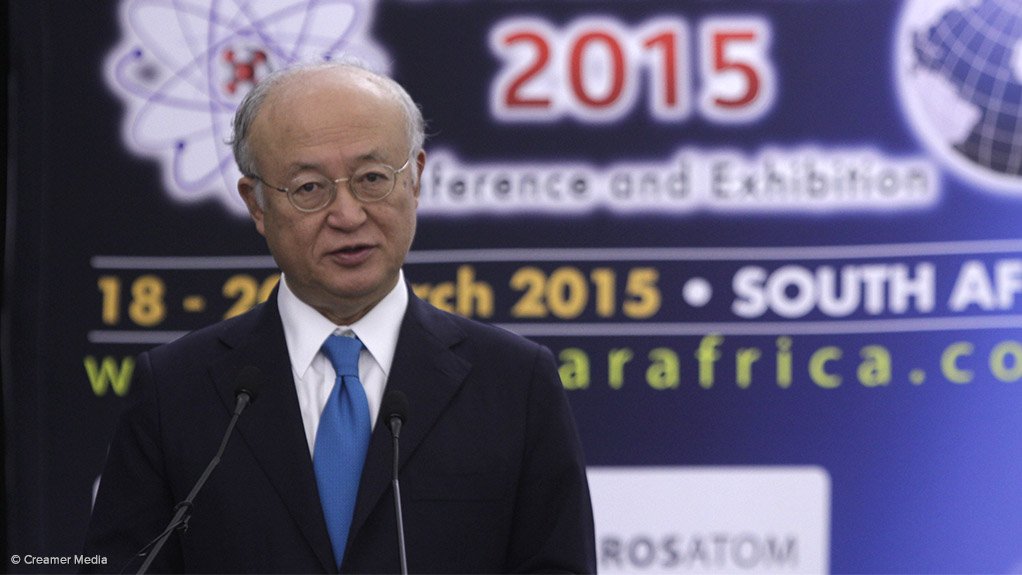The International Atomic Energy Agency (IAEA) is committed to helping all African countries seeking to adopt nuclear energy. This assurance was given by IAEA director-general Yukiya Amano on Wednesday.
"Nuclear power has obvious advantages for countries in Africa," he said. "Africa is a high priority for the IAEA. For countries that chose nuclear power, our job is to help in every way we can."
The agency can assist with advice and expertise regarding effectively every aspect of civil nuclear programmes, including legal frameworks, safety and security, commissioning, start-up, operation, decommissioning and waste disposal. It can despatch international expert peer review missions to review a country's nuclear infrastructure, operations and nuclear regulation.
The IAEA will be sending such missions to Kenya, Nigeria and Morocco this year to assess their respective national nuclear infrastructures. (Morocco and Nigeria currently operate nuclear research reactors.)
"Two important challenges involve costs and waste management," he noted. "The high cost of building a nuclear power plant is seen as an obstacle by some. Nuclear power plants are expensive to build, but once up and running are inexpensive over their lifetimes. [Regarding waste disposal, the] nuclear industry has been managing nuclear waste for half a century. ... a lot of real progress has been made."
"Newcomers [thanks to the IAEA] are not set to repeat the mistakes of the pioneers," he pointed out. "There might be opportunities for small countries to cooperate in nuclear power."
Amano praised South Africa. "Our host, South Africa, has long experience with the peaceful uses of nuclear technology, which is actively shared with other countries in Africa and beyond."
"It goes without saying that safety is crucial for the future of the nuclear industry," he stressed. All involved in the nuclear sector, including operators, regulators and governments, must show total commitment to safety. "A safety culture is the most important element in nuclear power."
Since the nuclear accident at Fukushima Daiichi four years ago (triggered by a terrible tsunami, following a massive earthquake), nuclear safety has been improved everywhere. "I have seen safety improvements in every nuclear reactor I have visited since the accident," he reported. This included South Africa's nuclear power plant at Koeberg. "Nuclear reactors are safer now than before the Fukushima accident."
Immediately after Fukushima, many believed that the world would see a prolonged stagnation in new nuclear programmes, but this did not happen. The IAEA still forecasts global nuclear growth, although at a slightly slower rate than before the accident.
"Nuclear can provide a steady supply of baseload power," observed Amano. It can meet the world's growing energy needs while helping combat climate change. "China and India have big [nuclear] expansion programmes for the next 20 years or so. ... Nuclear can ensure that the world meets its energy needs for thousands of years."
Amano was addressing the Nuclear Africa 2015 conference, being held at the South African Nuclear Energy Corporation (better known as Necsa) complex at Pelindaba, west of Pretoria.
EMAIL THIS ARTICLE SAVE THIS ARTICLE
To subscribe email subscriptions@creamermedia.co.za or click here
To advertise email advertising@creamermedia.co.za or click here











